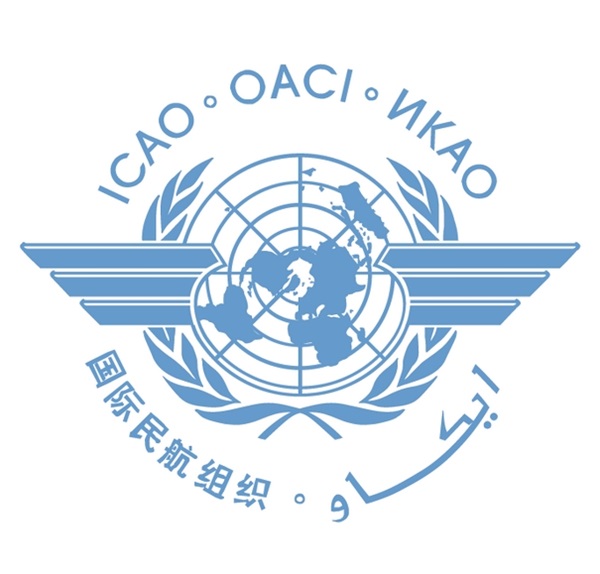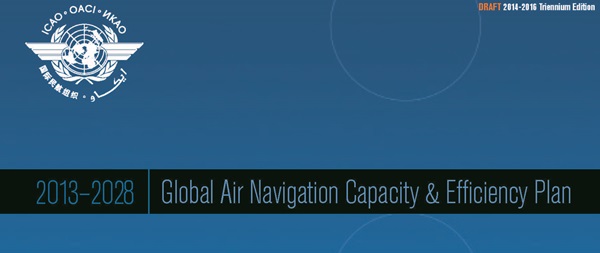ICAO WORKING PAPERS
CONFERENCE ON THE ECONOMICS OF AIRPORTS AND AIR NAVIGATION SERVICES
Montreal, 15 to 20 September 2008
Agenda Item 1: Issues involving interaction between States, providers and users
1.3: Consultation with users
STRENGTHENING PRACTICES FOR CONSULTATION WITH USERS
(Presented by International Council of Aircraft Owner and Pilot Associations)
|
SUMMARY
This paper seeks to strengthen the relationship between airports/air navigation service providers and the users. Existing guidance regarding user/provider consultation does not adequately emphasize the importance and necessity of this function. More importantly, there is no provision for an appeal mechanism available in cases where agreement is not possible after consultation has taken place.
|
|
Action by the Conference is in paragraph5.
|
1. INTRODUCTION
1.1 - ICAO guidance has long recommended that a consultation process be available between users and aerodrome and air navigation services providers.ICAO's Policies on Charges for Airports and Air Navigation Services (Doc 9082) has set forth the basic principles for establishing consultation processes yet this mechanism is either not employed by a number providers or not used on a regular basis. A permanent consultation process is considered to be essential, one in which user and provider meet at regular intervals to discuss syestem requirements, service levels and charges.
1.2 - The Secretariat's WP/6 provides a number of good reasons for States to encourage users and providers to consult on a variety of issues facing them. Although we agree with many of the points made in that paper we feel that the measures called for do not go far enough to ensure comprehensive guidance regarding user/provider consultation.
2. DISCUSSION
2.1 - While some may think that the reasons for emphasizing ongoing and comprehensive consultations regarding airports and air navigation services are merely a concession to the user, there is mutual benefit to be derived by all parties involved in the process. Among these benefits are:
a) An exchange of views regarding the status of the services provided.
b) Feedback concerning the level and appropriateness of services offered.
c) Interaction about future needs and requirements of both parties.
d) Existing and future plans of both user and provider.
2.2 - Without regular and substantive exchanges both parties are deprived of essential information that is of importance to all concerned the success, efficiency and safety of the services provide and received. Misunderstandings arising from lack of knowledge about the other's plans, problems and pressures will likely create even greater difficulties within the air transportation system. It is only through regular and substantive communications between parties that a successful joint venture is possible. Relationships developed over time among consulting parties often prove particularly useful by resolving issues on an informal level before they become official positions requiring official action.
2.2.1 - It is not enough to publish notices of proposed changes to levels of service or charges and wait for written replies from those affected when dealing with large and expensive systems that involve many parties and have significant safety and financial aspects at stake. Rather, meetings of all parties involved on a regular basis will keep everyone adequately informed regarding plans, impacts, queries and operational issues involved in a seemingly simple single proposed action.
2.3 - Lead times for notices of proposed provider changes and resulting decisions have been set at four and one month, respectively. It is unrealistic to expect users to adequately absorb, analyze, question and calculate the impact of proposed changes that often involve complex situations and detailed financial and operational data. For major changes it is likely that the provider has taken considerably longer than four months to generate the proposal; why, then, would they expect the user to be able to respond in any less time?
2.3.1 - Similarly, once the decision has been made by the provider to take a specific action regarding services or charges, the current lead time of one month is inadequate for users to adjust their operations to accommodate the new procedure or fee. While some minor changes may be processed within a month's time most changes will require considerably more time to resolve. Altered fees may cause extensive scheduling and routing revisions for commercial air transport or the need to search for alternatives for private operators, neither of which can be accomplished within one month.
2.4 - Since airports and air navigation service providers either have no or limited competition, the ability of the user to effectively negotiate service levels or charges with the provider is often limited. While the State has an obligation under ICAO guidelines to ensure that provider's do not abuse their dominant position, ensuring this safeguard is often difficult. Therefore, previous editions of Doc 9082 have encouraged the use of a first resort or mediation/arbitration mechanism to facilitate potential dispute resolution among interested parties. While this is often a desirable method, it is seldom used on a regular basis to promote issue resolution and avoid conflict. Such a process, if employed regularly, would save the time required to achieve consensus among the parties while relieving the State of post-negotiation remedial measures to ameliorate disagreements.
2.5 - Of even greater importance is the absence of an appeals procedure to ensure that either provider or user are afforded the opportunity to seek redress within an official administrative or legal framework when consultation and arbitration/mediation measures fail the parties. This is especially important when either a dominant user or monopoly provider was involved in the negotiations.
2.5.1 - It would be difficult for the transportation directorate of the State to provide this service but a legal or administrative process could be instituted in other, unrelated, branches of the government.
2.6 - As noted in WP/6, since current Doc 9082 guidelines regarding consultation with users for both airport and air navigation services issues are essentially similar, the two sections should be consolidated into a single section.
3. CONCLUSIONS
3.1 - From the foregoing discussions the following conclusions may be drawn:
a) Regular and substantive consultations between users and airport and air navigation service providers are highly desirable but not always employed or used to good advantage. These consultations are used to ensure adequate information flows, airing of views on issues of mutual interest and consideration for the effects of changes on all parties.
b) Lead times for proposed changes to systems, service levels or charges are currently inadequate to ensure a fair and equitable evaluation of the proposals.
c) Facilitation and appeals processes for user/provider interactions are often inadequate or nonexistent.
d) The current guidelines in Doc 9082 regarding consultations with users for both airports and air navigation service providers are essentially similar.
4. Proposed amendments of policies
4.1 - In light of the conclusions contained in paragraph 3.1, the following policies are proposed to replace paragraphs 31-33 and 49-51 of Doc 9082; the replacements should be placed immediately after the existing paragraph 17:
Consultation with Users
Permanent and Regular Consultation Mechanism
The Council emphasizes the importance of an ongoing consultation process between airport/air navigation service providers and users before changes to service levels, charging systems or levels of charges are introduced. The purpose of consultation is to ensure that the provider gives adequate information to users relating to the proposed changes and gives proper consideration to the views of users and the effect the charges will have on them. The aim should be that, wherever possible, providers and users reach agreement regarding the changes. Failing such agreement, the users would have the right of appeal to an independent body established in consultation with the State.
While much of the consultation process will focus on providers proposing changes to charges and/or service levels, an equally important function of this process is for users to communicate their perception of quality of existing service and requirements for airport and air navigation service providers. It is essential that an ongoing dialog be employed by both provider and user to ensure that future needs and traffic demands are adequately communicated and discussed. This process is especially important in forecasting future air carrier traffic needs.
Where a permanent consultative body meeting at regular intervals has not been established, the State should encourage provider and user to establish such a mechanism to ensure effective and efficient relationships between provider and user. The level of State involvement in this process will depend on the form of economic oversight exercised by the State.
Care should be exercised in ensuring that all types and classes of users are included in the consultation process.
Consultation Process
While the consultation process may vary, given the State's history, culture and operating environment, the following principles should be considered:
i) Consultations should be held and relevant information documents provided at least six months in advance of any change in services or charges.
ii) Consultation with users should cover all aspects of charges and services contained in this policy document where there are principles referring to consultation(s).
iii) Consultations, in general, should make clear the nature of proposals, the parties most likely to be affected, the business cases for proposals, detailed and relevant financial analyses, the specific questions on which feedback is requested, and the time schedule for responses.
iv) All interested parties should be given the opportunity to present their views.
v) Decision documents should contain clear reasons for the chosen outcome(s) and show how responses have, or have not, been taken into account.
vi) Decisions regarding shall be provided to users a minimum of three months prior to the date of change.
Facilitating Change
Achieving a fair and equitable resolution to discussions about service levels and charges proposed by providers and accepted by users can sometimes be difficult. Therefore, the Council recommends that an independent and unbiased third party be used to facilitate agreement between user and provider on those occasions when disputes cannot be easily resolved. The organization chosen to perform the functions mentioned in paragraph 15 may prove suitable for this purpose.
Appeals Process
If the efforts of the third party mentioned above have proved unsuccessful or are not available in resolving the differences between user and provider, an appeal mechanism should be devised to resolve the dispute. This process should permit users to seek redress through government administrative or legal agencies to achieve resolution. The method of appeal will be established by the State in consultation with both user and provider and should ultimately include a provision for use of the State's legal system for final appeals.
5. ACTION BY THE CONFERENCE
5.1 - The Conference is invited to:
a) review and adopt the conclusions in paragraph 3.1; and
b) review and endorse the proposed amendments to Doc 9082, shown in paragraph 4.1.



